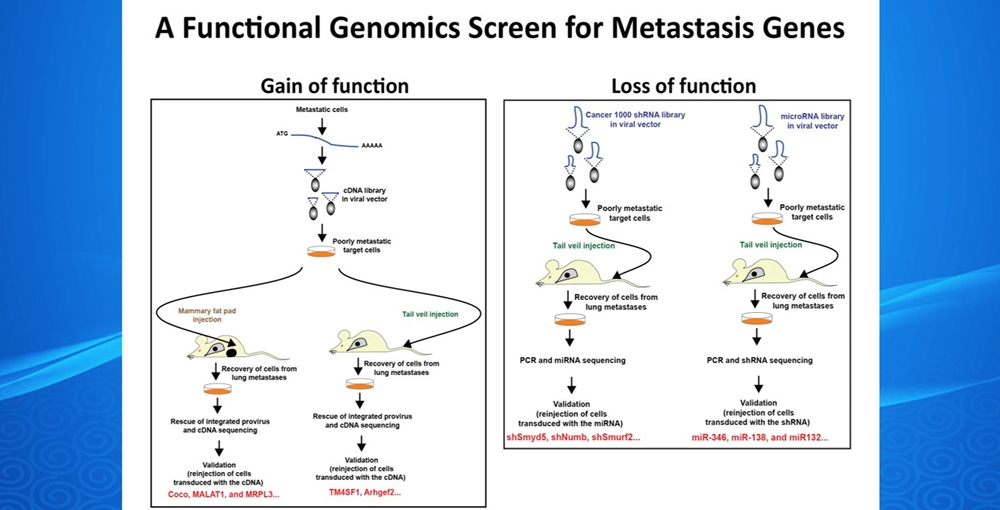On November 5, 2014 PNAS (Proceedings of the National Academy of Sciences of the United States of America) published online “Forward genetic screens in mice uncover mediators and suppressors of metastatic reactivation”, a research paper based upon findings made by research groups led by Prof. Hua GAO from School of Life Science and Technology of Tongji University (Dongfang Hospital and Translational Medicine Institute for Advanced Studies) and Prof. Filippo G. Giancotti from Memorial Sloan Kettering Cancer Center, U.S. In this paper, the authors introduced flexible and high-throughput functional genetic screens which enabled the identification of single genetic entities that mediate metastatic reactivation of breast cancer in mice.
The research findings showed that the signaling pathways that govern metastatic dormancy and reactivation of single genetic entities obtained through a mass screening system of Prof. GAO’s research group also played a significant role in normal stem cells. According to the paper, their research threw Insights into the mechanisms that enabled disseminated cancer cells to survive during dormancy and then outgrow into life-threatening lesions may lead to the identification of novel therapeutic targets for the prevention or treatment of metastatic disease.

Translated by MayLanguage Studio
based uponhttp://news.tongji.edu.cn/classid-8-newsid-45137-t-show.html